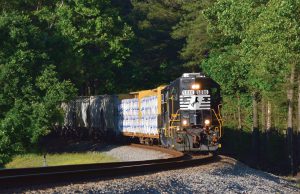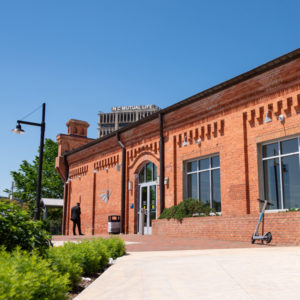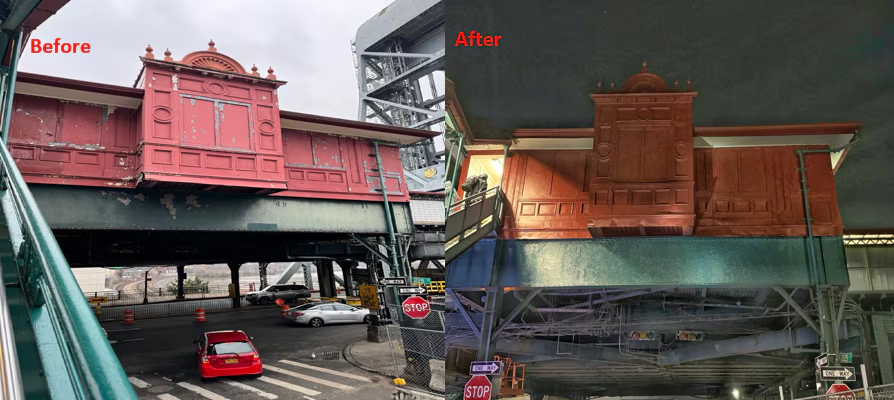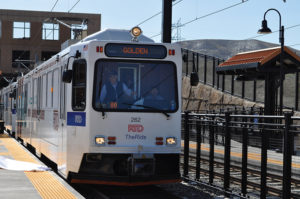Editorial urges Wisconsin governor-elect to back high-speed rail
Written by jrood(The following editorial appeared in the Badger-Herald) The signing of the Pacific Railway Act by President Abraham Lincoln in 1862 is lauded as a defining moment in America's history. Connecting the Atlantic and Pacific coasts, the transcontinental railroad represented the epoch of westward expansion.
Today, the stakes are
different. With a highly developed highway system connecting every corner of
the country, trains may have become a somewhat antiquated facet of America’s
infrastructure. In this sense, we understand Governor-Elect Scott Walker‘s
aversion to bringing the much publicized and politically controversial
high-speed rail to Wisconsin. We are also sympathetic to his criticisms of
wasteful government spending.
Nonetheless, we believe
stopping the green-lit high-speed rail project dead in its tracks would be to
deliberately miss a valuable opportunity for Wisconsin; the likes of which are
not likely to come around again anytime soon.
Considering the letter
U.S. Secretary of Transportation Ray LaHood sent to Walker making it very clear
that the money given to Wisconsin could not be used for anything other than the
high-speed rail, we strongly encourage him to reconsider his position. With
this all-or-none situation Walker is now faced with, he should reexamine the
many potential benefits that clearly outweigh the negligible costs he often
cites in his myopic opposition to the project.
First, there is the
obvious benefit of job creation. Walker has pledged to create 250,000 jobs by
2015. A goal we commend and support – but that means we’ve got to create 172
jobs a day. In addition to the thousands of permanent jobs that would be
created should the project come to fruition, it’s also predicted to employ
nearly 5,000 people as soon as 2012. With a statewide unemployment rate
hovering just below eight percent, these jobs would be an invaluable boon to a
significant number of workers while the economy continues its slow recovery.
Of course there is the
annual cost of maintaining the railway, which would almost certainly be a
burden on state taxpayers. Strictly measuring the benefit of the jobs that
would be created against the predicted annual cost of the line is tricky
business, and we understand how a simplistic comparison might favor halting the
project. Upon closer examination of the potential benefits, including those
that may be too abstract or variable to include in a simple cost-benefit
analysis, we believe the relatively small annual cost is more than offset. The
state’s yearly rail subsidy is projected to be about $7.5 million. This is
barely a drop in the bucket at 0.2 percent of the state’s $3.4 billion annual
transportation budget.
Additionally, Gov. Jim Doyle, an advocate
of the project since the beginning, claims halting the project at this point
would immediately cost the state $100 million and at least 400 jobs. While we
are cautious of these exact figures, we do not doubt the immediate economic
impact would be counterintuitive to recovery, and a variable blow to the state’s
still shaky economy.
Walker has said he will
fight to use the funds to fix the state’s crumbling roads and bridges. If there
were in fact an option to trade the train for better roads, there could very
well be a tenable argument to do so.
As LaHood has made clear
this isn’t a real option, we would much prefer to see an $810-million gift
spent on something that would bring lasting and meaningful improvements to
Wisconsin, not New York or Illinois. Spending it on impermanent improvements
for which money is already allocated seems to us to be misguided and
near-sighted.
Walker acts as though his
election was a referendum on the train. It was not. It is fair to consider it a
referendum on the Democrats, but bearing in mind LaHood is a Republican
himself, Walker’s attempt to make the train a partisan issue is misguided.
Reminiscent of the move 150
years ago to craft the back-bone of American commerce out of steel rails,
President Obama has made it clear with his $8-billion dollar national
high-speed rail plan that trains will be an integral part of the country’s
economic future and infrastructure. Agree with the plan or not, it would be
unfortunate for Wisconsin to be left at the station.





